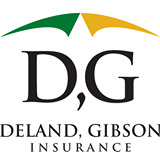HR That Works:
In the April 2013 issue of Corporate Counsel an article entitled It’s a Systemic World Out There discusses the EEOC’s pursuing large “systemic” cases. For example, in fiscal year 2011 they conducted 580 systemic investigations, filed 84 systemic lawsuits, and settled 35 systemic cases for total $9.6 million. Although your company might not be large enough to be on the EEOC’s radar screen, I can tell you that attorneys are also suing small to midsized companies on a class basis. An employee walks into a lawyer’s office because they didn’t receive their final paycheck, and before you know it they’re filing a class-action lawsuit against your company for missed overtime and meal periods. The article provided a few golden nuggets of advice:
- When responding to an EEOC inquiry, don’t use the phrase “pursuant to our consistently applied policy.” This only invites a broader request for information.
- Do not submit more information than is necessary.
- Conduct your own statistical analysis before submitting data.
- Do preventative analysis looking for adverse impacts in the hiring, promotion, or termination practices.
- Validate pre-employment tests.
- Conduct preventative compensation analysis periodically.
- Cover all internal analysis with attorney-client privilege. This might be impossible in smaller organizations, but you can certainly retain outside counsel to instruct you on how to conduct such analysis and report back to them.
- Listen to your employees. As I have always recommended, you should survey your employees, including use of the Employee Compliance Survey that can be found in HR That Works.
- Invigorate that underutilized internal complaint system. Again, go one step further and ask if there’s a problem—don’t wait for them to tell you there is one.
- Stay current with legal trends. This is one reason why HR That Works membership is so valuable.
- Walk the talk. Are you sensitive to the potential for your practices to cause adverse impacts? Frankly, in my experience, I can tell you that some business owners could care less about whether a practice causes an adverse impact. All they care about is getting the best employees they can, damn the EEOC. Of course, few companies appreciate a risk until they’re hit with it.
Finally, the article points out how large corporations can gather the data requested by the EEOC easily because they have such large HRIS systems. However, most companies with less than 500 employees don’t have this data readily available, and collecting it can be an over-burdensome process. This is one reason to make sure that you hire an attorney any time you receive a communication from the EEOC or another regulatory agency.
©2013 Reprinted with permission from HRThatWorks.com, a powerful program designed to inspire great HR practices.

